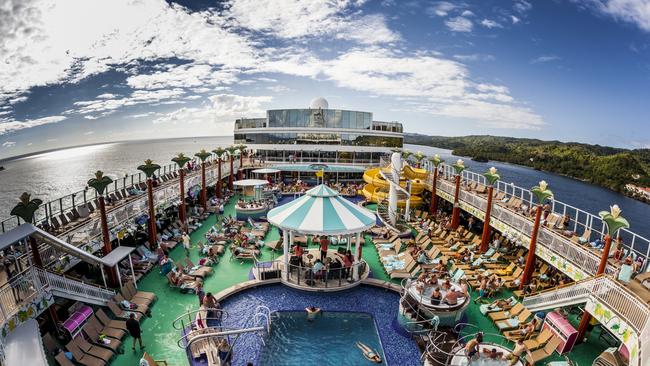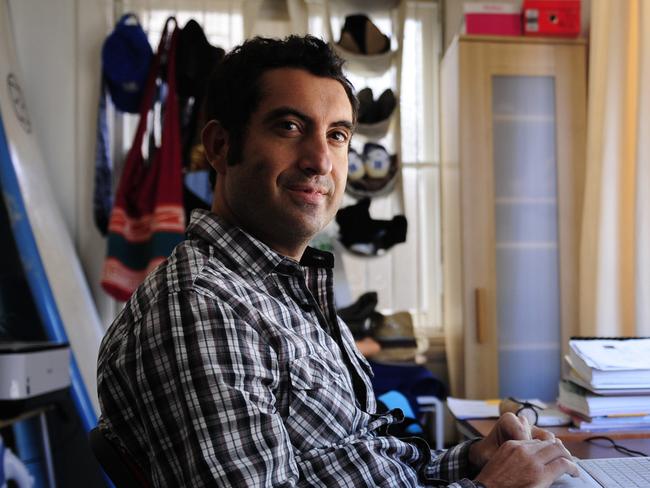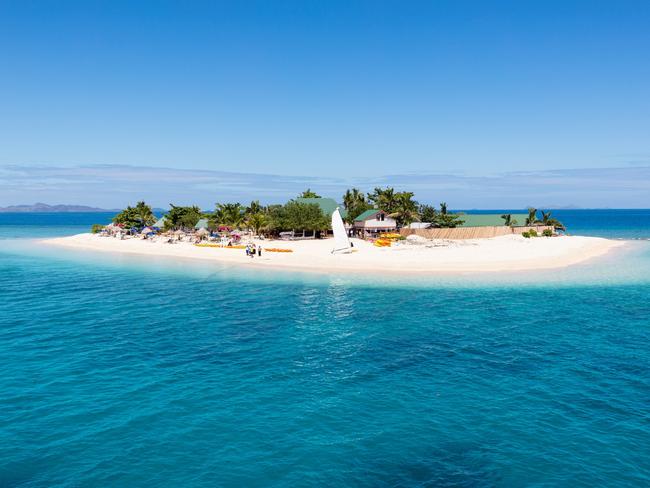Carnival Cruise Line to resume cruises in August
Nearly five months after stopping operations because of the COVID-19 outbreak, Carnival Cruise Lines has announced a date for business to resume.
Hibernation
Don't miss out on the headlines from Hibernation. Followed categories will be added to My News.
- Virus ship finally leaves Australia
- Will COVID-19 kill off the business trip?
- Where you can go on holidays in 2021
Carnival Cruise Line says it plans to gradually resume cruising in North America in August, nearly five months after it halted operations due to the new coronavirus.
Sailings will begin on August 1 or soon after, with eight ships setting off from Galveston, Texas; Miami; and Port Canaveral, Florida. A majority of customers can easily drive to those ports, the company noted.
Those cruises would sail to destinations including the Bahamas and Cozumel, Mexico, according to Carnival’s web site.
Carnival said its operations from other North American and Australian markets will be on hold through August 31.
It is also cancelling planned sailings from Vancouver to Honolulu on September 25 and Honolulu to Brisbane, Australia, on October 6.
The US Centers for Disease Control issued a no-sail order to cruise companies on March 14.
It was extended and is set to expire July 24, unless the agency decides to lift it sooner.
The CDC says infectious diseases can easily spread when crew members from a ship with an outbreak transfer to other ships.

It notes outbreaks of COVID-19 on cruise ships also pose a risk because passengers can spread the disease into communities across the world after disembarkation.
Carnival Cruise Line said it is still determining what specific measures it will take to prevent future outbreaks once it resumes sailing.
“We continue to engage with the CDC and government officials at a variety of levels about new protocols we would implement prior to a return to sailing,” the company said.
“We will also be in discussions with officials in the destinations we visit.”
Tara Smith, a professor of epidemiology at Kent State University’s College of Public Health, said she’s not sure how cruising can be done safely.
Even with reduced capacity, she said, ventilation systems can still spread droplets through enclosed spaces.
“Everything would still have to be distanced,” she said.
“Dancing, concerts on board, other types of entertainment? Doubtful. Pools? Probably overcrowded. Dining? No idea how they’d do it.”
Carnival said passengers will get refunds or vouchers for future travel if their cruises are cancelled.
Carnival Cruise Line has 27 ships and transported five million passengers last year.
Other cruise companies are also making plans to return to service.
Royal Caribbean says it intends to resume at least some sailings on June 12, while Norwegian Cruise Like plans to restart some operations on July 1.
BIG CHANGES COME TO CRUISE LINERS
If you thought the Ruby Princess disaster and a million iterations of the phrase “floating petri dish” were going to sink Australia’s $5.2 billion cruising industry, think again.
Discounted fares, new on-board health protocols and Australia’s enduring love of cruising will keep the big ships returning to Australian ports in 2021, experts believe.
Bookings for 2021 are already “encouraging” and “significant numbers of people have opted to postpone their cruises and take credits, rather than cancel and take refunds,” said Joel Katz, Australasian Managing Director for the Cruise Lines International Association (CLIA).
The immediate future for the industry would be tough, he said, but “there is a significant population of passionate and dedicated cruisers who are already saying they’re keen to sail again when the time is right”.
Australians are the highest per capita cruisers in the world, Mr Katz said, with more than 1.3 million of us taking to sea each year.

And those people spend up big. Australian Cruise Association CEO Jill Abel said the industry’s $5.2 billion contribution to the nation’s economy last year was up 11.2 per cent on the previous year, and contributed over $163 million in direct spend to regional Australia.
“These figures illustrate the extent to which cruising has been embraced by so many Australians,” Ms Abel said.
“I believe that once it is safe for us to socially integrate and travel, people will get back out to sea especially with the new on-board health and hygiene measures being explored.”
Some have suggested that cruise liners will need to fit themselves out with their own on-board Intensive Care Units to counter market concerns about the safety of taking a voyage but Mr Katz said it was “too early to discuss specific measures”.
“CLIA and its cruise line members have begun creating a new health framework to uphold the safety of guests and prepare for future operations, working with medical experts and health authorities internationally” he said. “The challenges are great and there is no quick fix, which is why we have embarked on a process that will be extremely thorough and will address the concerns that communities and authorities expect to see us confront.”

Regional cruises would be the first to resume operations once the crisis had passed, Mr Katz said.
“Some parts of the world may be ready before others. Some countries may be clear while others remain unsuitable to visit. It’s early days and there’s still a lot of work to do, but in Australia and New Zealand it’s possible that domestic itineraries will be the first to resume,” he said.
Tourism Minister Simon Birmingham declined to say whether the Australian government would look at tighter regulation for the industry, but said it would have to answer questions in order to rebuild confidence.

Lonely Planet founder Tony Weeler said one issue the industry would need to address was home ports refusing berths to stricken ships that technically belonged to them.
Last month the MS Braemar was forced to dock in Cuba after it was declined entry by its home port in the Bahamas, and earlier this month an Aurora Expeditions cruise ship had to dock in Uruguay after Argentina rejected it.
But the enduring appeal of cruise liners would not disappear, Mr Wheeler said.
“I’m not a cruise ship person so I’ve got no great feeling for this, but I have spoken to one or two people who are cruise enthusiasts, and they are saying that there will be great deals and once they get this sorted out we’ll be back on board,” he said. “People do love cruise ships.”


